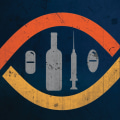Addiction is a complex issue that affects people from all walks of life. It can manifest in many forms, from everyday drugs such as alcohol and cocaine to behaviors such as gambling and robbery. The types of addiction vary from country to country, and each community has its own norms, standards, stigmas and levels of what is considered acceptable. In this article, we will explore the different types of addiction, their effects on the individual and society, and how to treat them. Alcohol and Drug Addiction are two of the most common addictions in modern society.
Alcohol consumption is increasing around the world and is being abused in societies that allow it. The safe zone is no more than 5 cups a day or 600 milligrams. Despite the growing awareness of the dangers of smoking tobacco, it remains the main contributor to causing harm to health worldwide. There are 1.3 billion tobacco-related deaths annually.
The World Health Organization reported that smoking causes 90% of lung cancers in men and 70% of lung cancer in women and contributes to almost 80% of cases of respiratory diseases and 22% of cardiovascular diseases. Alcohol addiction isn't just physical; the psychological part of addiction creates the idea that “I can escape and feel good about my life”. The safe zone is only 14 units of alcohol per week and must be distributed over 7 days. If alcohol were invented in modern times, it would certainly be illegal in modern society. The types of addiction range from everyday drugs, such as alcohol and cocaine, to behaviors such as gambling. Each community has its own norms, standards, stigmas and levels of what is acceptable and what is not, so this list of the top 10 addictions in modern society is in general and changes from country to country. In addition to drugs and alcohol, sex addiction is becoming increasingly common in modern society.
Like abuse of other substances or practices, sex addicts use it to escape reality, relieve anxiety or fulfill compulsions. An estimated 8% of men and 3% of women are affected by sex or relationship addiction. For many, sex becomes compulsive behavior rather than an expression of love. The United Nations estimates that 185 million people worldwide used illegal drugs in the late 1990s. The safe zone is 0 in all cases of illegal drugs. Gambling is similar to gambling in that they elevate dopamine and create a strong psychological component for addiction.
Just as alcohol addiction isn't just physical, the psychological part of addiction creates the idea that “I can escape and feel good about my life”. Despite only 1 to 2% of adults developing problems with gambling, they are still a significant number of the population. Appropriately 2% of the population has eating problems, eating disorders or food addictions. Most eating disorders have their origin in emotional and psychological problems and, because food seems to be harmless and abundant, they become. Food can offer comfort, escape and satisfaction from compulsions or cravings for feelings that arise in daily life. Behaviors can be as addictive as substances such as alcohol and drugs.
Know what activities can cause serious problems for some people. Nicotine addiction may not seem as harmful as many other addictions. This is likely because tobacco products are legal and easy to obtain, and the worst side effects of their use take time to manifest. Tobacco use claims more lives than any other addictive substance. Many smokers cannot quit smoking, despite knowing the impact of smoking on their health.
Wanting to quit smoking but not being able to do so is a telltale sign of addiction and need for treatment. It has also been shown that there is an increase in dopamine due to the excessive use of certain social networks, which contributes to the explanation of addiction. It is also important to note that the nature of addiction makes it difficult to recognize that addiction in oneself. When it comes to treating addiction, there are several options available depending on the type of addiction involved. For drug or alcohol addictions, detoxification followed by therapy or counseling can be effective treatments for those struggling with substance abuse issues. Other types of therapy can also help address underlying problems that could play a role in behavioral addiction, such as concerns about relationships. The type of addiction doesn't really matter as much as the underlying problem that causes the patient to pursue that pleasurable feeling while incurring adverse consequences.
Many people around the world engage in gambling (video) and gambling behaviors, which are recognized as addictive behaviors, but usually have no major health consequences. Most patients who become addicted to prescription pain relievers don't realize they have an issue until it's too late; however, there are treatments available for those who need help overcoming their addictions. Treatment options include medication-assisted treatment (MAT), cognitive behavioral therapy (CBT), support groups such as Narcotics Anonymous (NA) or Alcoholics Anonymous (AA), or residential treatment programs. Addiction affects people from all walks of life; however, with proper treatment options available for those who need help overcoming their addictions, recovery is possible. Understanding how different types of addictions affect individuals and society can help us better understand how best to treat them.


